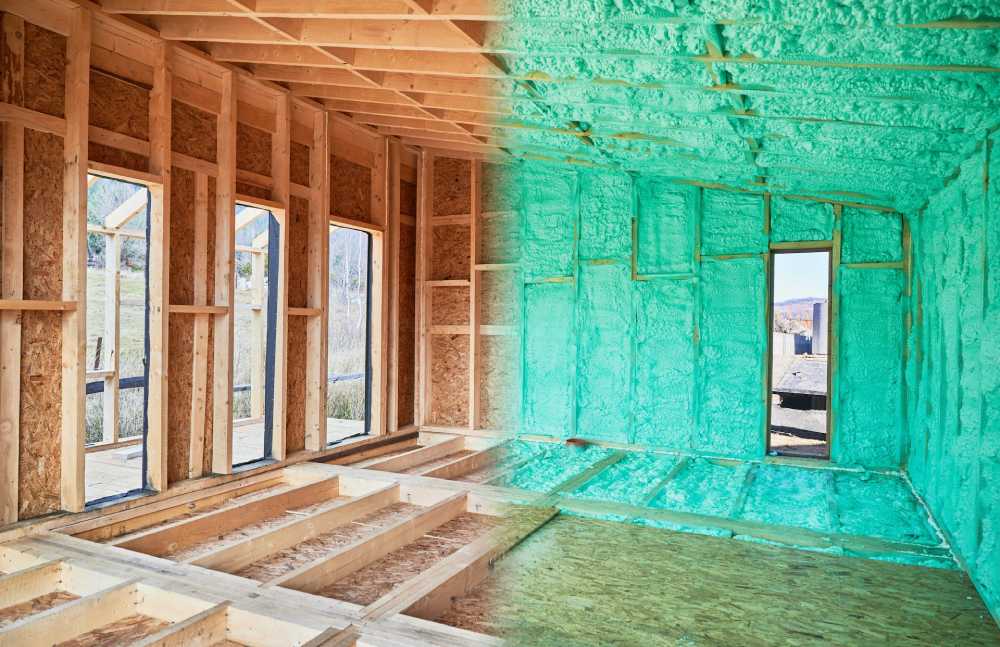
Top Benefits of Commercial and Home Insulation: Why You Should Invest Today
Insulation is critical to maintaining the energy efficiency of residential and commercial buildings. Insulation can significantly cut energy bills and improve indoor comfort by reducing the need for heating and cooling.
For instance, commercial insulation can dramatically enhance the energy efficiency of large spaces, providing considerable cost savings and a more comfortable environment for occupants. This article delves into the various compelling advantages of insulation investing, making it a wise choice for anyone looking to improve their property’s efficiency and comfort.
Energy Efficiency and Cost Savings
One of the main benefits of insulation is its capacity to improve energy efficiency. Adequate insulation helps maintain a steady indoor temperature, decreasing the necessity for excessive heating and cooling.
Clean windows let more natural light into your home, reducing the need for artificial lighting and lowering your electricity bill, while proper home insulation can further enhance energy efficiency. As per the U.S. Department of Energy, insulating your home can lead to heating and cooling cost reductions of up to 15%, resulting in substantial long-term savings.
This rate significantly impacts commercial environments, especially since savings are crucial because of their greater size. Clean windows and effective insulation improve your home’s comfort and connection with nature, contributing to substantial monetary savings and a healthier living environment.
By investing in adequate insulation, businesses can allocate funds saved on energy bills to other critical areas, such as employee welfare or product development, ultimately improving the operational efficiency and profitability of the enterprise.
Environmental Impact
Investing in insulation not only reduces expenses but also aids in lowering your carbon footprint. Insulated buildings consume less energy, which means fewer greenhouse gas emissions. Information from the EPA shows how important it is to adopt energy-saving measures to combat global warming.
By minimizing energy consumption, you reduce your environmental impact and promote sustainability. Decreasing greenhouse gas emissions is essential in addressing climate change, and efficient insulation helps to reach this objective. Hence, choosing insulation improves effectiveness and savings and supports environmental preservation endeavors.
Enhanced Comfort
Insulation plays a pivotal role in enhancing indoor comfort. Well-insulated homes and offices maintain a stable temperature throughout the year, preventing drafts and cold spots. This contributes to a more comfortable living and working environment. In a hot or cold climate, insulation ensures that your indoor space remains pleasant, irrespective of external weather conditions.
Moreover, insulation helps regulate humidity levels, reducing the likelihood of scenarios where certain areas of your home or office feel damp and uncomfortable. This balanced indoor environment can significantly enhance your quality of life and productivity, making daily routines more enjoyable.
Noise Reduction
Insulation also has the advantage of decreasing noise pollution. Insulated walls, floors, and ceilings can function as sound barriers, reducing the entry of outside noise. This can be especially useful for buildings near bustling roads or airports in urban areas, homes, and offices.
Insulation can create a quieter, more peaceful indoor environment by reducing noise pollution. Enhanced acoustic comfort can improve concentration and productivity, especially in work or study settings. Here are some common types of insulation materials known for their soundproofing qualities:
Types of Insulation for Noise Reduction
- Fiberglass Insulation: Often used in both residential and commercial buildings, fiberglass is effective in reducing noise transmission between rooms.
- Spray Foam Insulation: Offers excellent noise reduction capabilities by expanding to fill gaps and crevices, creating an airtight seal.
- Cellulose Insulation: Cellulose, produced from recycled paper materials, can absorb and block sound efficiently.
Increased Property Value
Investing in insulation can also positively impact the value of your property. Energy-efficient homes and commercial buildings are often more attractive to potential buyers.
For example, a potential buyer might be more inclined to purchase a house or commercial property with lower utility costs and a minor environmental impact. This appeal helps sellers when reselling and provides an improved living or working environment for future residents.
Health Benefits
Adequate insulation helps maintain good indoor air quality by managing moisture levels and decreasing the chances of mold development. This could provide essential health advantages, especially for people with allergies or breathing problems. Improved insulation can enhance well-being by promoting a healthier atmosphere in homes or workplaces. Here’s how insulation makes a difference:
How Insulation Improves Air Quality
- Reduces Condensation: Insulation helps to maintain indoor humidity levels, preventing excess condensation that can lead to mold and mildew growth.
- Prevents Mold Growth: Insulation significantly reduces the likelihood of mold infestations by keeping moisture levels in check and keeping indoor air safe and clean.
- Minimizes Outdoor Pollutants: A well-insulated building can act as a buffer, preventing outdoor pollutants such as pollen, dust, and exhaust fumes from infiltrating your living or working space.
Conclusion
In summary, the benefits of insulation are manifold, ranging from cost savings and environmental impact to enhanced comfort and increased property value. The advantages are clear and substantial whether you want to insulate your home or commercial property.
Make the smart choice today and invest in quality insulation to enjoy these benefits for years. By doing so, you’ll not only enhance your property’s efficiency and comfort but also contribute positively to environmental conservation and potential health improvements.
